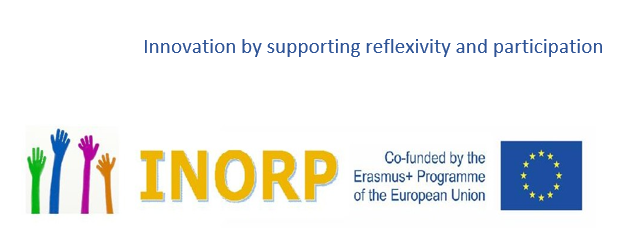Reflexivity and participation in communities

3. Level 1: Basic academic level (1st cycle) module
3.1. Lesson 1 (2 hours): preparatory considerations – social work theory context
| Theme | Topic | Guiding questions |
|
Professional core |
Reasserting professional principles of social work Social work aims at achieving changes in people’s lives chiefly through their consensual participation in the required processes. Therefore, participation in practice is not an optional extra that applies only to selected situations but a fundamental Global Definition of the Social Work Profession „Social work is a practice-based profession and an academic discipline that promotes social change and development, social cohesion, and the empowerment and liberation of people. Principles of social justice, human rights, collective responsibility and respect for diversities are central to social work. Underpinned by theories of social work, social sciences, humanities and indigenous knowledges, social work engages people and structures to address life challenges and enhance wellbeing. The above definition may be amplified at national and/or regional levels.” (IFSW, 2014). |
What constitutes the dignity of a person? What factors can limit the capacity of a person to be self-determined? In what sense does the |
| Epistemology |
“Diagnosis” between “objectivity and subjectivity” The discussion on “subjectivity and objectivity” is misleading; instead, authors use the term “lived experience for the direct experience of the world which orientates a person’s self-conception and around which individuals organise their lives. This position is central, since it differs from an Consequences: |
List some factors which are used to define your identity “factually” (gender, age, passport etc.) – do they define their meaning for you? When did hearing a service user’s description of a problem fall outside your own “lived experience”? What emotional reactions did that trigger in you? |
| Ethics |
Participation requires ethical considerations Bridging the divide between different worlds of meaning poses a considerable challenge and implies potential for conflict, misunderstandings and mistakes because it inevitably exposes status and power differentials of various kinds. To safeguard all participants and to respect the vulnerability implied on all parts ethical standards need to be applied explicitly to all transactions so as to set acceptable limits to the extent to which personal details can be shared, emotions can be made subjects of learning and expectations for certain outcomes can be raised. |
Consult the Code of Ethics for the social work profession in your country – which principles are most relevant for participatory approaches? Where do you anticipate conflicts of interest |
Resources:
Afrouz, R. (2022). Developing inclusive, diverse and collaborative social work education and practice in Australia. Critical and Radical Social Work, 10 (2). https://doi.org/10.1332/204986021X16553760671786
Banks, S. (2011). Ethics in an age of austerity: Social work and the evolving new public management.
Journal of Social Intervention: Theory and Practice, 20(2), 5–23.
https://doi.org/http://doi.org/10.18352/jsi.260
IFSW (International Federation of Social Workers), (2014). Global Definition of Social Work. https://www.ifsw.org/what-is-social-work/global-definition-of-social-work/
Sheppard, M. (2006). Social Work and Social Exclusion: The Idea of Practice. London: Routledge. https://doi.org/10.4324/9781315242859
